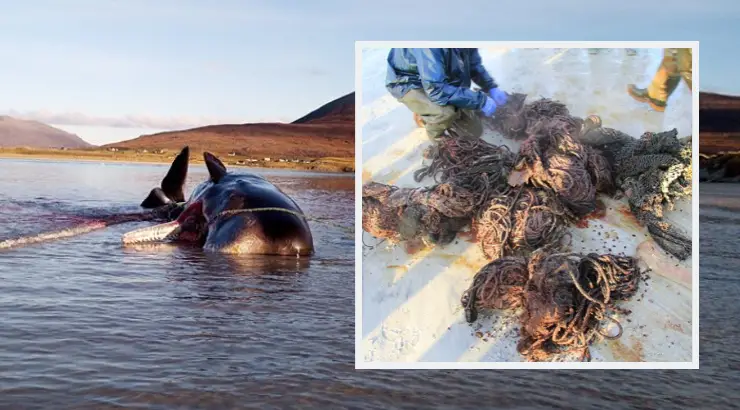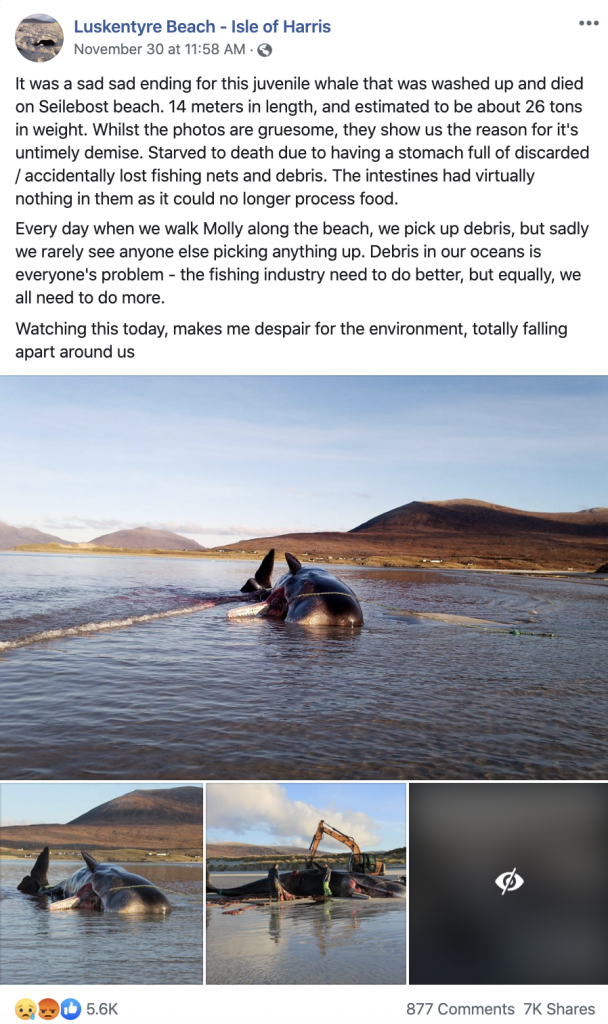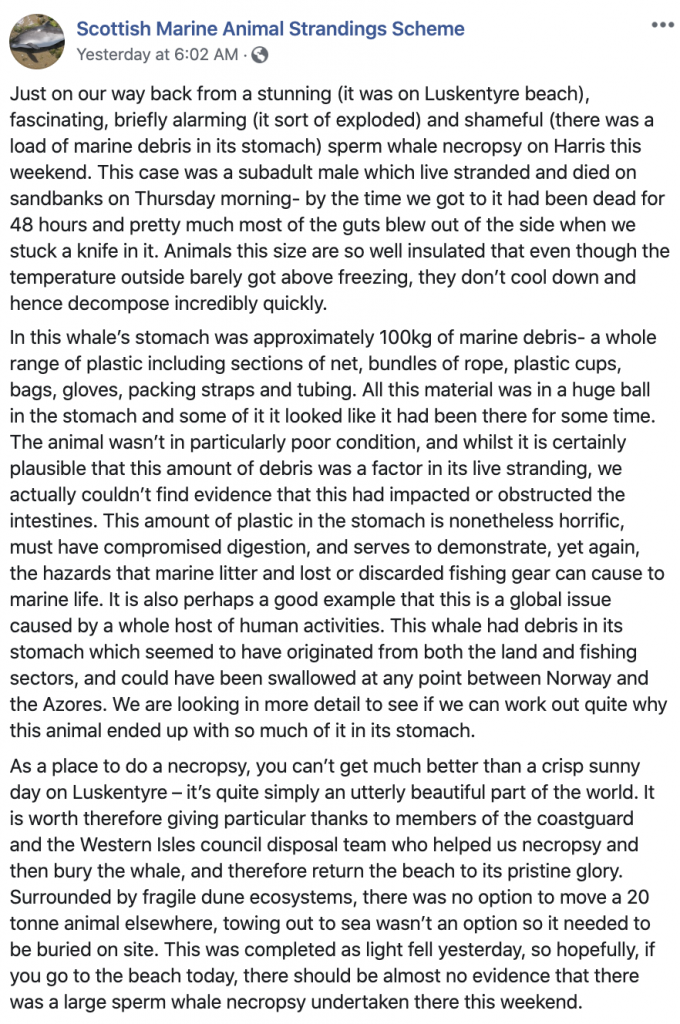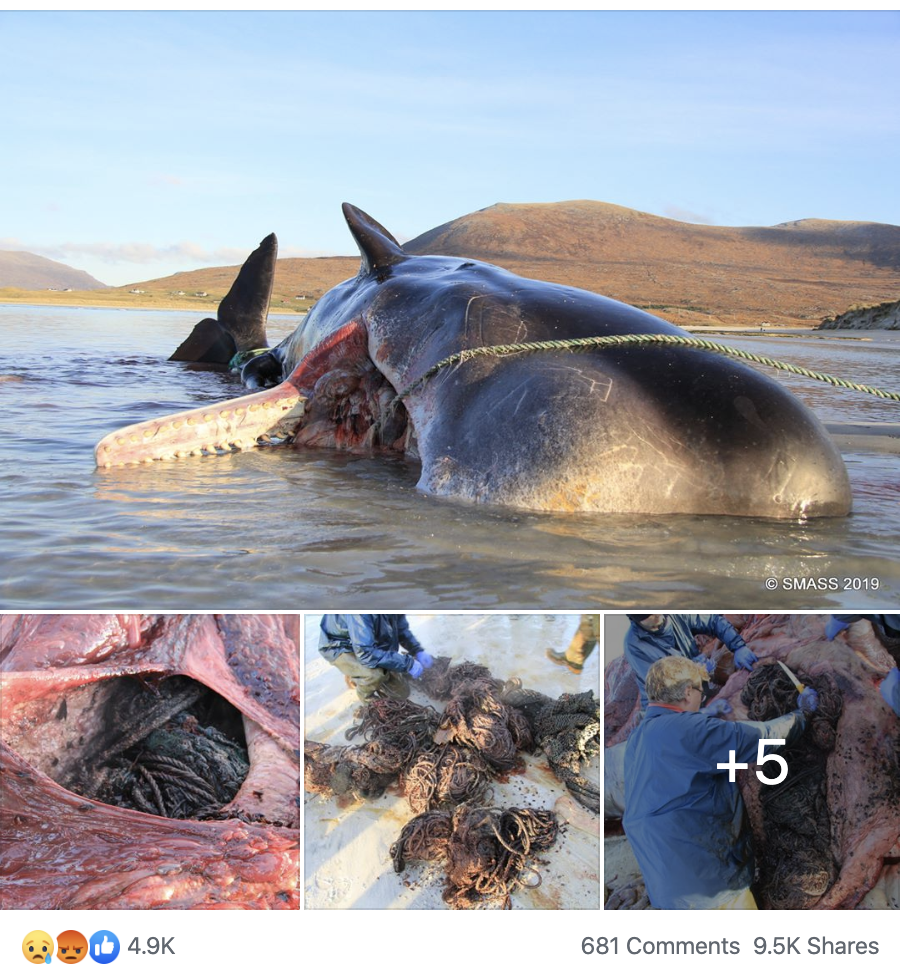Animals
Sperm Whale Stranded on Scottish Isle Had 220 Pounds of Trash in Its Belly
It contained various types of debris ranging from fishing nets to gloves and several different types of plastic litter.

(TMU) — A young sperm whale that died after washing ashore in Scotland last week had a massive 220-pound (100 kilogram) ball of trash in its stomach that was made up of various types of debris ranging from fishing nets to gloves and different types of plastic litter.
The humongous 45-foot long juvenile whale had been alive when it was found stranded on Seilebost Beach on the Isle of Harris in the Outer Hebrides, but died on Thursday, according to Dan Parry, who runs the Facebook page “Luskentyre Beach – Isle of Harris,” which is devoted to preventing litter from inundating local coastlines.
A post to the page detailed the horrific state of the whale during its final days, explaining that it “starved to death due to having a stomach full of discarded / accidentally lost fishing nets and debris. The intestines had virtually nothing in them as it could no longer process food.”
The Scottish Marine Animal Stranding Scheme (SMASS), an organization that maintains a comprehensive database on stranded marine animals such as whales, turtles, seals, and other marine life in the region, had made the horrible discovery during a necropsy, according to a post on its Facebook page. The SMASS said:
“In this whale’s stomach was approximately 100kg of marine debris- a whole range of plastic including sections of net, bundles of rope, plastic cups, bags, gloves, packing straps and tubing. All this material was in a huge ball in the stomach and some of it it looked like it had been there for some time.”
Despite the tremendous amount of debris in the whale’s stomach, the organization wasn’t entirely convinced that the waste had entirely blocked the creature’s intestines—instead, the group believed that the whale became disoriented in storms before eventually getting stranded on the island.
The SMASS added:
“This amount of plastic in the stomach is nonetheless horrific, must have compromised digestion, and serves to demonstrate, yet again, the hazards that marine litter and lost or discarded fishing gear can cause to marine life.”
The whale, which was already in an advanced state of decomposition and weighed over 20 tons, couldn’t be moved and was instead simply buried on the beach.
Parry, who walks every day along the beach picking up trash, noted in his post to the Luskentyre Beach page that he rarely sees others helping to clean up the beach. He added:
“Debris in our oceans is everyone’s problem—the fishing industry need to do better, but equally, we all need to do more.
Watching this today, makes me despair for the environment, totally falling apart around us.”
In March, a young Cuvier’s beaked whale washed ashore in Davao on the Philippine island of Mindanao. Following its death, the whale was found to have consumed about 88 pounds (40 kilograms) of plastic waste, most of which were shopping bags and other disposable packaging.
The amount of plastic led to the whale’s death due to dehydration and starvation.
At the time, World Animal Protection campaigner Peter Kemple Hardy said that more work must be done to seek “global solutions,” explaining:
“Hundreds of thousands of whales, dolphins, seals and turtles are killed by ocean plastic pollution every year, including single-use plastics and abandoned plastic gear from the fishing industry.”
By Elias Marat | Creative Commons | TheMindUnleashed.com
Typos, corrections and/or news tips? Email us at Contact@TheMindUnleashed.com



